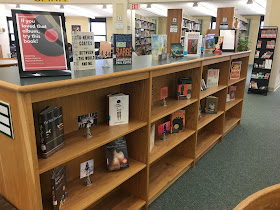"...it's a good thing to get poetry off the shelves and more into public life....When you get a poem on a billboard or on the radio or on a cereal box or whatever, it happens to you so suddenly that you don't have time to deploy your anti-poetry deflector shields that were installed in high school." --Billy Collins, U.S. Poet Laureate 2001-2003
This year, I wanted to try something new with my freshman to deactivate their "anti-poetry deflector shields." I wanted them to write their own poetry and read each others' poetry, but I wasn't sure how to do it in a way that they would actually enjoy.
I've also been wanting to integrate more technology into the classroom, so I decided to have my students present their poems digitally. I was inspired by this TED Talk that Billy Collins gave, where he shares his work with five different artists to animate some of his poems. I showed the TED Talk to my students as inspiration, and the students wrote several poems from which they could choose to do the project.
I gave them various options for apps and websites to use, but the students who were most successful tended to use the iMovie app on their iPhones (Wevideo was a great substitute for those who didn't have a mac product).
One of the most unexpected and wonderful things about this assignment was that the best videos did not necessarily come from students who always get top scores. I think this type of assignment allows students who are creative to shine in a way that traditional schoolwork doesn't always do.
Here are three of the best videos from my classes:


